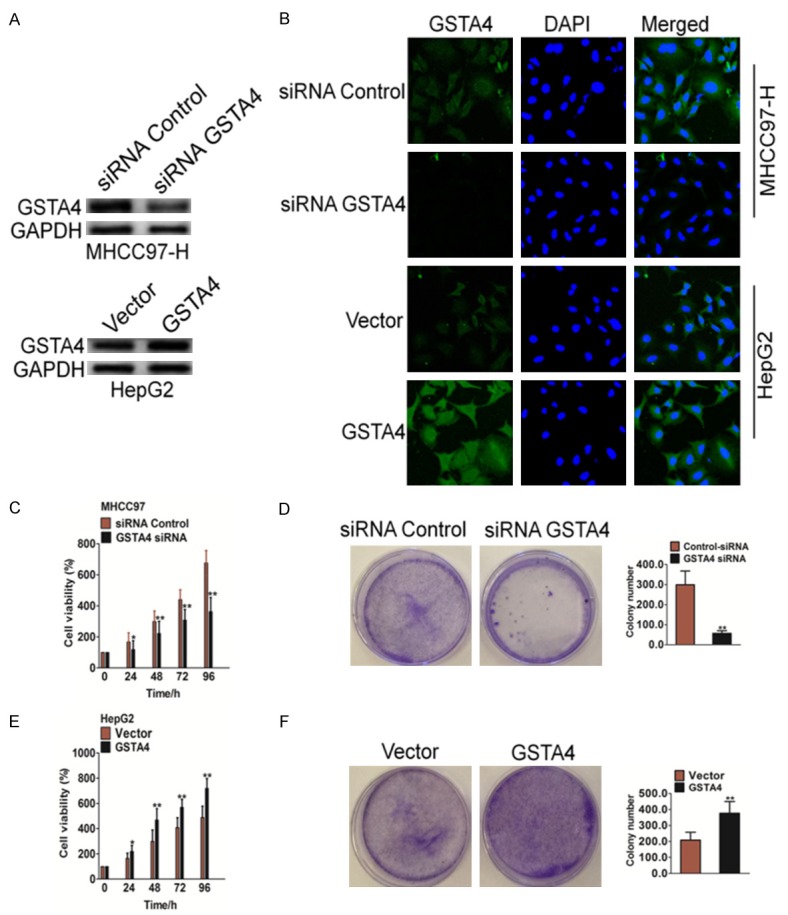Figure 2.

The effect of GSTA4 on the proliferation of hepatocellular carcinoma cells in vitro. A. siRNA against GSTA4 were transfected into MHCC97 cells or GSTA4 vector were transfected into HepG2 cells. After 24 h post transfections, western blot analysis of MHCC97 protein expression in the MHCC97 cell lines. B. MHCC97 cells were transfected with control siRNA or siRNA against GSTA4 and HepG2 cells were transfected with control vector or GSTA4 vector, then cells were fixed and incubated with primary antibodies against GSTA4. Cells were immunostained with anti-rabbit FITC-conjugated secondary antibody and then stained with DAPI. The specimens were visualized and photographed using a fluorescence microscope. C. MTT assay analysis of cell proliferation in MHCC97-siGSTA4 and control cells. Down-regulation of GSTA4 significantly inhibited MHCC97 cell proliferation compared with controls. The data are presented as mean ± SD. For indicated comparisons, *P < 0.05, **P < 0.01. D. A soft agar assay was conducted to examine the colony formation ability of MHCC97 cells. Twenty-four hours after the siRNA transfection, MHCC97 cells were seeded in 0.1% agarose in RPMI-1640-supplemented 10% FBS at a density of 1 × 104 per 25 mm2 culture dish and allowed to grow for 14 days. Results were representative picture of colonies of three independent experiments done in triplicate. The data are presented as mean ± SD. **P < 0.01 vs. negative control siRNA. E. MTT assay analysis of cell proliferation in GSTA4-overexpression HepG2 cells and control cells. Up-regulation of GSTA4 significantly increased MHCC97 cell proliferation compared with controls. The data are presented as mean ± SD. For indicated comparisons, *P < 0.05, **P < 0.01. F. The colony formation rate in HepG2 cells transfected with GSTA4 vector was significantly increased compared to the control cells. Results were representative picture of colonies of three independent experiments done in triplicate. The data are presented as mean ± SD. **P < 0.01 vs. negative control vector cells.
